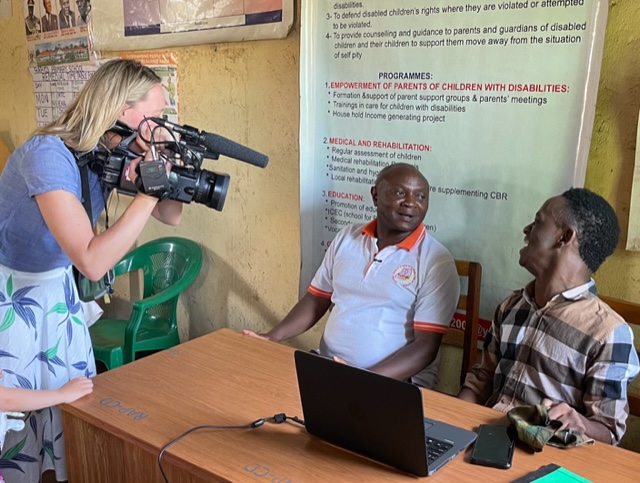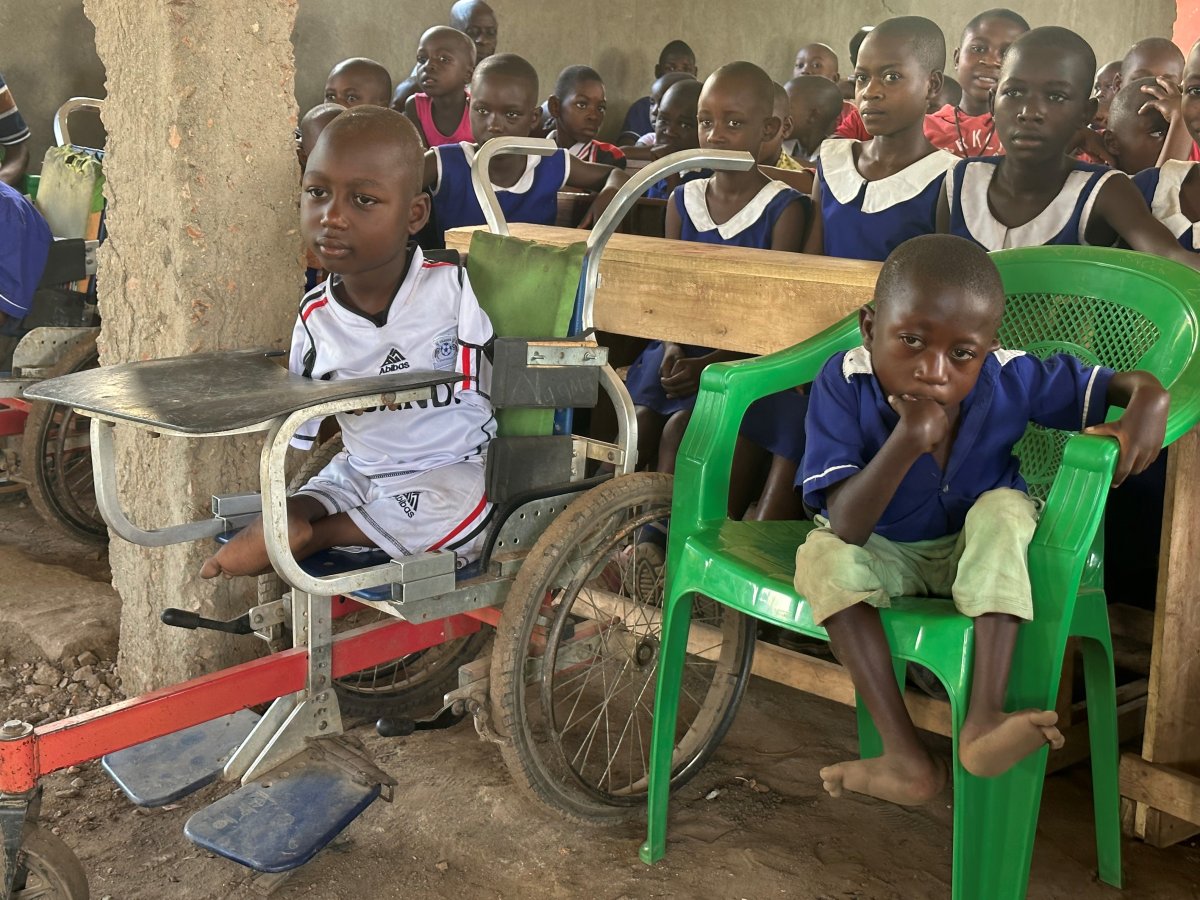This is the first piece in Jayme Doll’s Africa: Inside the Pearl series exploring conditions within the landlocked East Africa nation of Uganda.

In a remote part of western Uganda, 13-year-old Rosemary Kamigisa strolls through a green pasture with her family. She is growing up on a farm, dotted with black and white cows and framed in leafy banana trees. On the horizon, mountains stretch high into the pillowy clouds overhead.
She wants to become a scientist one day but her journey has been rife with obstacles. “I have a disability of epilepsy and speech problems,” said Rosemary.
“My fellow learners used to laugh at me because of how I speak. They used to fear me. They could not help me. They thought that my disability would return to them.“
In Uganda, children with learning exceptionalities and mental and physical limitations face extreme discrimination. The stigma is deeply ingrained into society.
“In most communities, disability is looked at as a curse from God,” said Isabella Ajio, country director for Embrace International Foundation.
“It’s believed that every disabled child is a punishment to the parents or the forefathers, so the family is paying for it. In the communities, these children are isolated. Often the parents lock these children in their homes because they are ashamed,” said Ajio.
“It’s not uncommon for fathers to abandon their families if a child is born with disabilities.”
“Often the mother has to work and look for money so they end up tying them up in the compound so they don’t move. It’s unfortunate but that is exactly what happens in our community,” said Ajio. “It’s heartbreaking.”
Access to both health care and education is limited but there is a growing movement to break the stigma and give children a chance to not only survive but to thrive.
Embrace International Foundation based in Canmore, Alta. is supporting Uganda’s Kyaninga Child Development Centre (KCDC).
KCDC provides everything from physical, occupational and speech therapy to nutritional support and medication for those living with epilepsy. It’s also building affordable and durable wheelchairs out of bamboo and easy to get motorcycle parts.
“The need is just enormous. We see about 1,000 children a month,” said Steve Williams, KCDC co-founder. “We have children walking three hours with their parents carrying them just to get to the centre.”
The organization set up outreach clinics in smaller villages to make it a little easier for those in remote areas. Even still, some mothers travel hours over steep terrain with their babies on their backs to reach them.
“I come once a month,” explained one mother, whose baby is blind and extremely malnourished. “I have eight children, she is the youngest. (She’s) very sick, I don’t know what I am to do.”
She joined dozen of others sitting on woven mats outside a rural hospital. Two car loads full of therapists gently take their time accessing each young patient and advise their mothers sitting close by. It’s impossible to disguise the concern frozen on their faces.

Embrace has also started it’s own programing, with support from the Fund for Innovation and Transformation (FIT). It believes education is key when it comes to giving children a fighting chance. They have introduced self directed E-Learning at 10 Ugandan schools.
“All of a sudden when you are not competing with 125 students in the classroom, you are on your own. You can learn at your own pace. You’re not going to fall behind,” said Paul Carrick, co- founder of Embrace.”
“And we’ve just seen this spectacular rise in confidence and ability. We didn’t anticipate the people who most benefit from this would be girls living with a physical disability.”
The Canadian organization donated 200 tablets containing educational applications covering a wide variety of subjects including awareness material on disabilities. The tablets are used by children with special needs and those without. Embrace studied the impacts on learning over a nine-month period.
“We saw a lot of improvements generally in their literacy scores and math scores when we compared the intervention schools that had this project and the controlled schools that did not have this project,” said Ajio.

The tablets are connected to a local server and don’t require internet. Some of the content was developed by 18-year-old Wilbert Kihembo. He has cerebral palsy and cannot speak but is living proof of the possibility children with disabilities can have when given a chance. He communicates by typing and writing.
“A strong mental mindset is key despite of our physical capacity,” he types out on his screen, and then flashes a wide, determined smile. His brilliance is apparent the moment you meet him.
“A child with a disability is like any other child and should be given all the love that he deserves, he should not be discriminated and given all opportunities,” said Wilbert’s dad, Reverend Wilson Maali, who spearheaded programing for special needs children in schools when his son was of school age and nobody would take him. He is beyond proud of his son who is now an employee of Embrace’s E-Learning program.
It’s not uncommon to find students pressing their faces against the bars of the computer lab room, curious and interested to try out the new tools. Many have never seen a computer before, let alone a tablet. Embrace said it has levelled out the playing field and changed the narrative and belief about what some thought about their peers who are differently abled.
Rosemary said it’s greatly helped her.
“Children would run from me. They didn’t want to sit with me, they didn’t want to be near me,” said Rosemary. “After the E-learning project was brought to our school we all learned about disabilities.
“Now I’m a normal pupil in our school,” beamed the 13-year-old as her bright smile radiated with renewed confidence. “And I have many friends.”
It’s a hopeful development for Isabella Ajio who believes if all students are empowered the same way and are given access to education their lives will greatly improve.
Embrace is hoping to expand the program to other parts of Uganda.








Comments